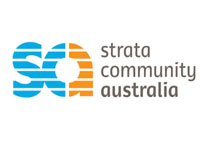
Strata Insurance Priority for Report to Government
The strata sector is now well and truly on the national political agenda after the federal parliamentary inquiry into strata insurance in northern Australia has been swamped with community anger
over premium hikes of up to 800%. House of Representatives Social Policy and Legal Affairs Committee chair Graham Perrett said the number of submissions, at more than 400, was unprecedented as far as he was aware for an inquiry of this type.
SCA was invited to speak first at the formal hearings earlier this month and Cairns-based senator Jan McLucas, in opening remarks, credited SCA with instigating the inquiry by holding public forums on the issue last November. She later said it was the most difficult problem she had confronted in more than 12 years in the senate: “This is a really big issue for us.”
Mr Perrett described the SCA submission as “very impressive” after SCA director Colin Archer and CEO Mark Lever spoke about the severe consequences flowing from the crisis in insurance affordability on individual households, their strata communities and the wider regional economy.
Following the hearings the committee will prepare its report. Mr Perrett said there was no “magic bullet” but the committee would respond with a clear and strong plan of action for government when it reports back to parliament in April. Much of the evidence took issue with claims by some insurers that the premium hikes simply brought strata rates into line with detached housing but it was also acknowledged that the lack of competition tended support the insurers’ claims that this has not been a profitable market for them.
The committee was interested in SCA’s evidence that strata insurance, while more expensive than southern states, is more readily available and affordable in Darwin where the Territory Insurance Office, a government-owned agency, is market leader. SCA’s submission stopped short of recommending a new government insurer for Queensland but did support the concept of a government-backed reinsurance fund tasked with increasing insurance capacity in the tropics and attracting more competition. A similar concept was flagged in the Natural Disaster Insurance Review report last November for high-risk flood zones and SCA believes it should be further developed for cyclone zones.
Of course we hope that such a fund, like the Australian Reinsurance Pool Corporation set up a decade ago to provide terrorism cover, will never need to be used and will simply become a financial buffer for those worst-case scenarios. But the events of 2011 underline the need to plan for the worst.
If there is an upside, it is the way our member professionals came to the fore during the Brisbane floods and Cyclone Yasi, as evidenced by countless “war stories” of how individual buildings, committees and owners were helped through those difficult times. There were also examples where our members’ own businesses were affected, in some cases severely, and they were able to quickly implement recovery plans so they were fully operational in responding to their clients needs. Putting aside their own needs, they were there to listen, support and provide technical and administrative solutions to unique and difficult problems. At least as important was the way they went about their tasks in an assured and professional manner, building confidence among owners and committees about the light at the end of their tunnel.
The outcome is a stronger industry that has earned the respect of its clients. It’s provided a myriad of proof points for the essential promise of the SCA’s brand – professionalism and trust. Through 2012 we will continue to build member services in support of these objectives, including an expanded education program to support a new national accreditation pathway for strata managers now under development.
We also want to start a broader conversation about the role of strata professionals as leaders to the communities that are their clients. That’s why we’ve invited one of Australia’s best known and respected authorities on the subject of leadership, general Peter Cosgrove, to be the keynote speaker at our first national convention in Adelaide on 27-29 May.
It’s often said that good leaders are born, not made. General Cosgrove begs to disagree. He’s often quoted as saying that while good leadership is rare, it can be learnt. He argues that the more you look for opportunities to lead – and take those opportunities – the better a leader you will become.
In this industry more than most, those opportunities arise on an almost daily basis. We need to encourage our members to make the most of those opportunities to hone their skills and grow as professionals.

AccomNews is not affiliated with any government agency, body or political party. We are an independently owned, family-operated magazine.






